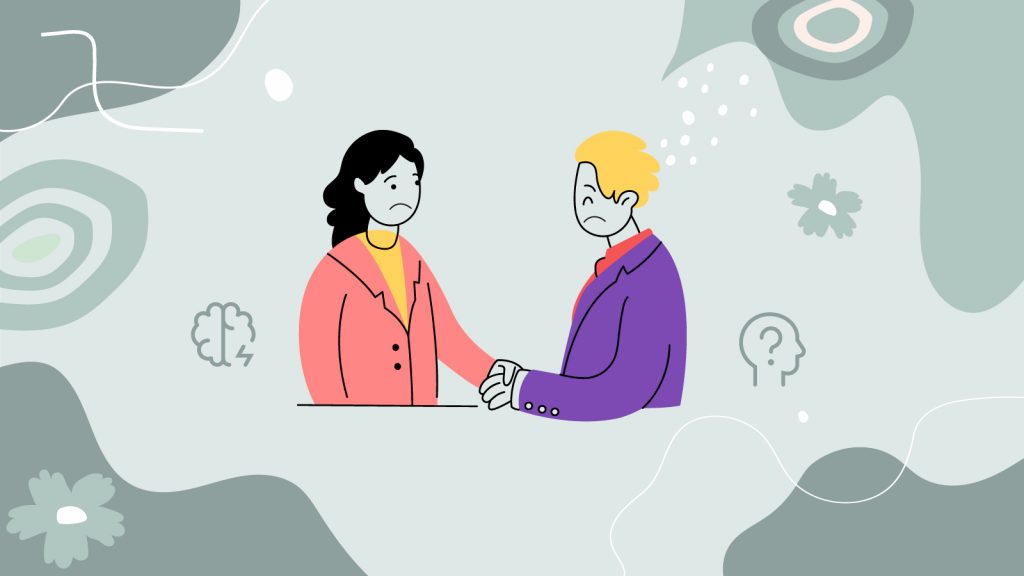When Life Rewrites Your Story
Life’s big moments—becoming a parent, changing careers, or entering retirement—can feel like someone has taken a pen to the story of who you are and started a new chapter without your consent. These transitions can shake the foundation of your self-identity, creating a sense of uncertainty and upheaval. The roles and responsibilities you once held, which defined you, suddenly shift or even disappear, leaving a void where your clear sense of self used to be. This disruption is not just unsettling—it’s deeply personal, impacting how you see yourself and how you relate to the world around you.
Imagine a seasoned professional who steps away from a high-powered career to start a family or pursue a passion project. Or consider a dedicated parent whose youngest child just left for college, confronting the echoing silence of an empty nest. These aren’t just changes in routine; they’re profound adjustments in daily purpose that can lead to questioning, “Who am I if not this?”
Understanding Brain’s Role in Self-Identity
Why are these transitions so jarring? It’s because our sense of self is deeply wired into our brains. Neurologically, our identities are tied to a network of neurons that store our self-perceptions—how we see our roles, our capabilities, and our values. When significant life changes occur, they can disrupt this neural network, leading to what feels like a loss of self.
From a neurochemical perspective, such changes can lower dopamine, the neurotransmitter linked to reward and pleasure, because the activities that once provided a sense of accomplishment and joy might no longer be present. Meanwhile, cortisol, the stress hormone, may increase, as uncertainty and fear about the future and one’s new role create tension and anxiety. This biochemical imbalance can lead to feelings of sadness, lethargy, and irritability—emotional signals that something significant has shifted.
Let’s dive a bit deeper into how the brain handles these changes. The prefrontal cortex, the area of the brain associated with planning complex cognitive behavior, personality expression, decision-making, and moderating social behavior, plays a critical role in how we process changes in our identity. It helps us rationalize new roles and integrate them into our existing identity framework. However, when we undergo significant changes, this integration process can be taxing and slow, leading to cognitive dissonance where our beliefs and actions might not immediately align.
Additionally, the limbic system, which is involved in emotion and memory, reacts to these shifts. When familiar cues that used to trigger positive emotional responses no longer align with new experiences, it can result in emotional confusion. This dissonance can affect the hippocampus, which plays a central role in forming new memories. If our current experiences don’t reinforce our previous self-concept, it can be challenging to form stable new memories that incorporate the new aspects of our identity.
Subscribe to newsletter
Get your Gut Health Starter Guide right now.
Elevate your Tuesdays with practical, science-backed wisdom propelling you forward on your gut health journey.

Crafting a New Sense of Self
- Reflect and Reassess: The first step in navigating identity shifts is to take stock of what has changed and what it means to you. Reflect on the roles you’ve lost and those you’ve gained. Writing in a journal or talking with a trusted friend or therapist can help clarify these feelings.
- Set New Goals: As your life changes, so too should your goals. Set short-term objectives that can give you a sense of achievement and direction. If you’re a new parent, it might be mastering the basics of childcare; if you’re newly retired, perhaps it’s completing a project you’ve always put off.
- Explore and Experiment: Use this transitional period to explore new interests and activities. Join clubs, attend workshops, or volunteer. Experimenting with different roles can spark new passions and expand your sense of self.
- Maintain Connections: While your identity may be changing, your relationships remain a tether to your past self and a bridge to your new one. Maintain connections with friends and family who understand and support your journey. Their perspectives can provide comfort and insights during this transition.
- Practice Self-Compassion: Be kind to yourself during this time. Change is hard, and it’s okay to feel unsettled as you adjust to your new reality. Self-compassion involves recognizing your emotional state and giving yourself permission to experience these feelings without judgment.
- Adopt SIT: To make Stress Inoculation Training (SIT) work for you, start by understanding your stress responses. Identify the situations that trigger stress for you, and observe how you react to them. This initial step helps in recognizing patterns and preparing for interventions.
A New Chapter of Finding 'Myself'
Helen, a former military officer, faced a profound identity crisis after retiring from a life of service. Accustomed to the structured world of the military, she struggled with the open-ended nature of civilian life. “I didn’t know who I was without my uniform,” Helen shared. Her entire self-concept had been tied to her role, and without it, she felt untethered.
One crisp autumn morning, Helen found herself at the local community center, organizing a charity run. As she coordinated the volunteers and mapped out the course, she caught a reflection of herself in the center’s glass doors. No longer did she see just a former military officer; she saw a leader, a community organizer, and a mentor. It was a vivid moment of realization that her skills transcended the specific context of the military. The same decisiveness and ability to manage complex logistics that had defined her military career were now benefiting her community. This event was not just a fundraiser; it was a declaration of her new identity, pieced together through various acts of service and connection.
“After retiring from the military, I felt like a ship adrift without a compass. The uniform I wore for so many years wasn’t just fabric; it was my identity, my purpose. The transition to civilian life was disorienting, leaving me to wonder who I was beyond the disciplined structure of military service. I decided to start small, using what I knew best: planning and logistics. Volunteering to organize community events became my new mission. Each successful event, each grateful smile from participants, reinforced my new role in this world.
I also ventured into activities I never had time for before, like painting and hiking. These weren’t just hobbies; they were profound learning experiences that taught me about resilience in a different context than the military ever could. Painting, in particular, became a therapeutic outlet for me, a way to express the tumult of emotions that I couldn’t articulate in words.


















